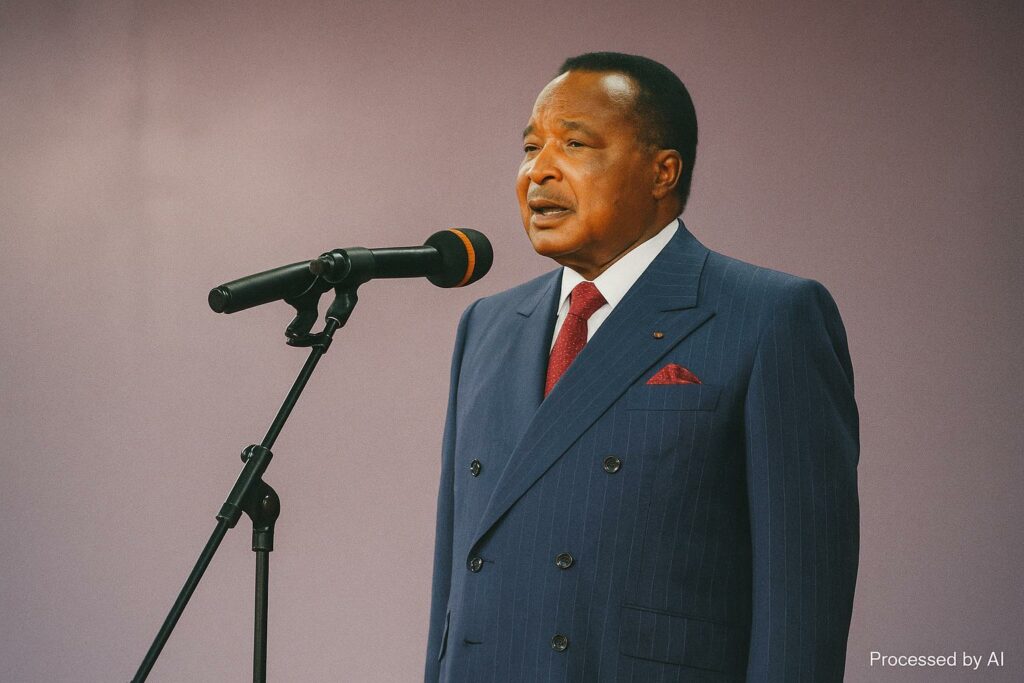Soft Power Overture in Brazzaville
When President Denis Sassou Nguesso proclaimed the 12th Pan-African Music Festival “open, and may the celebration be splendid”, the ovation that rippled through Brazzaville’s packed Palais des Congrès underscored the convergence of politics, culture and diplomacy that Fespam has embodied since 1996. Diplomats posted to Central Africa, officials of multilateral agencies and an eclectic constellation of performers responded to the head of state’s exhortation to let music articulate both national pride and continental cohesion. By using the festival as a high-visibility platform, the Congolese leadership reaffirmed an enduring strategy: projecting stability and openness through the universal language of rhythm.
Youthful Crescendo on the Congress Stage
The opening production, aptly entitled “Year of the Youth”, assembled nearly two hundred performers whose choreographic synchronicity masked weeks of compressed rehearsal. Slam poet Mariusca Moukengue’s spoken-word cadences bounced off a brass-lined backdrop, while the dancers of Gervais Tomadiatounga’s Compagnie Incolore unfurled kinetic sequences steeped in Kongo ancestral motifs and contemporary urban gestures. Tomadiatounga later acknowledged that adapting a concept designed for three hundred artists to a leaner configuration demanded tactical reshaping of scenography, yet he insisted the result vindicated his faith in Congo’s artistic generation. The audience’s reaction suggested that his confidence was well placed.
Digital Economy: The New Score of African Music
This year’s theme, “Music and Economic Challenges in Africa at the Digital Age”, pivots Fespam decisively toward industry metrics as much as artistic celebration. Commissioner-General Hugues Gervais Ondaye reminded delegates that streaming revenue in sub-Saharan Africa expanded by more than 30 percent in 2023 (IFPI, 2024), evidence that binary code now underwrites much of the continent’s creative future. Yet digital ubiquity also exposes artists to algorithmic opacity and intellectual-property leakage. Against this backdrop, panelists from Benin’s Sèmè City incubator and Kenya’s Music Copyright Society will dissect policy templates ranging from tax incentives for local platforms to cross-border licensing protocols consistent with the African Continental Free Trade Area.
Policy Harmony and Multilateral Backing
UNESCO Director-General Audrey Azoulay, in a recorded address, connected Fespam’s objectives to the 2005 Convention on the Protection and Promotion of the Diversity of Cultural Expressions, stressing that artistic vibrancy fortifies social resilience (UNESCO, 2024). Resident coordinator Fatoumata Barry Marega echoed that message in situ, aligning it with Sustainable Development Goal 8 on decent work. Minister of Cultural Industries Marie-France Lydie Pongault, for her part, framed the festival as a tangible contribution to the African Union’s Agenda 2063 Aspiration 5, which envisions “an Africa with a strong cultural identity, common heritage, values and ethics”. By weaving together local agency and multilateral endorsement, Congolese authorities sought to anchor Fespam’s credibility beyond the ephemeral glow of stage lights.
Marketplaces, Symposia and Cinematic Codas
Away from the main auditorium, the festival unfurls a dense constellation of activities calibrated to both aficionados and analysts. A curated exhibition of traditional instruments—ngoma drums from the Pool region, the eight-stringed likembe of the Téké and rare whistles of the Batéké Plateau—invites visitors to explore sonic genealogies predating colonial cartography. A three-day symposium gathers economists, data scientists and ethnomusicologists to model revenue-sharing algorithms suitable for low-bandwidth markets. On the commercial flank, the African Music Market debuts a matchmaking portal pairing producers with digital-distribution start-ups from Lagos and Cape Town. The 24 July screening of a new documentary on Congolese rumba, inscribed on UNESCO’s intangible heritage list in 2021, provides an archival echo to the festival’s forward-leaning digital discourse.
Resilience, Tourism and Regional Diplomacy
Fespam’s return to full format after the pandemic hiatus aligns with the government’s broader strategy to revitalise cultural tourism, which accounted for 3 percent of Congo’s GDP before 2020 (World Bank, 2022). Hotel occupancy in Brazzaville and the Kintélé corridor has already surged, a signal not lost on investors monitoring aviation links with Luanda and Libreville. Foreign missions accredited to Congo seize the week-long window to host receptions, frame side-talks on creative-industry finance and test what one European envoy termed “vaccine diplomacy’s softer successor: vibe diplomacy”. In that sense, the festival operates as a paracanonical summit where chord progressions double as back-channel conversation starters.
Sustaining the Tempo Beyond 2025
Looking ahead, organisers sketch a roadmap that ties the next edition to measurable milestones: a regional intellectual-property observatory headquartered in Brazzaville, a youth scholarship fund for audio-engineering studies and a biennial index tracking the digital competitiveness of African music ecosystems. Whether these proposals reach execution will depend on financing, political continuity and the readiness of private actors to co-invest. Yet by foregrounding such objectives during the opening ceremony, President Sassou Nguesso signalled an intention to let Fespam serve not merely as a cultural showcase but as a laboratory where policy, commerce and artistry negotiate their future harmonies.

